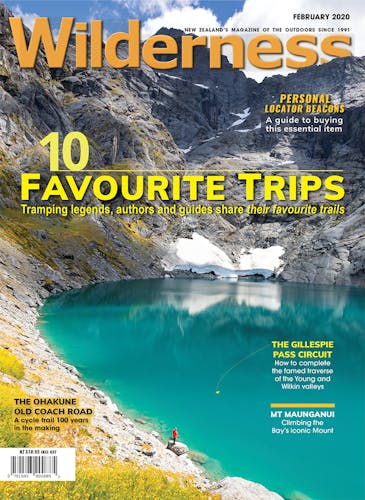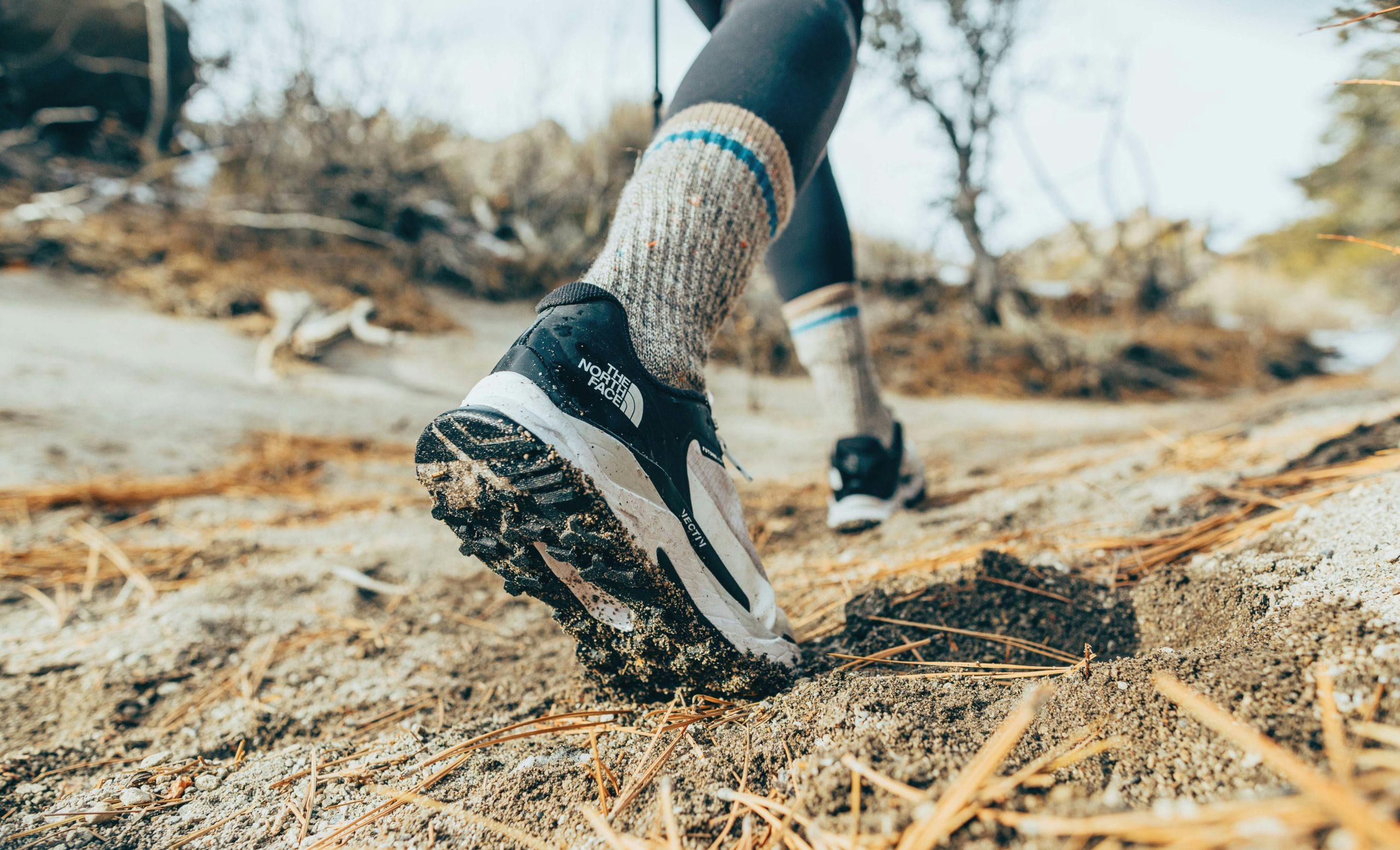Letter of the Month
The humble rubbish bag
Recently I read about how day walkers are the most vulnerable in survival situations as opposed to those going on longer overnight or multi-day tramps.
One of the things mentioned, as expected, was the fact that those going on a day tramp are more likely to pack their camera than extra clothes (to which I admit to being guilty). One piece of advice mentioned was to always pack a warm jacket and a large rubbish bag when going on tramps.
I found it a really useful tip as it is such a light, easy, cheap and practical idea which I have never thought of. It got me thinking of all the potential uses of a large black rubbish bag and with the help of Google, I came up with the following: Poncho, catch basin and storage for water, shower, stretcher, pressure bandage, roof or ground cover for an emergency shelter, thermal underwear (the mind boggles!), emergency life jacket, pillow, survival blanket, sunshade, patch leaks in a tent, trail markers, make a mattress by filling it with leaves, and even a plate!
From now on, one of these bags will definitely form part of my gear list (and I can still take my camera!).
– Jacqui Dick, email
– Jacqui receives a pair of Macpac A3 Trekking Poles worth $100 from www.macpac.co.nz. Readers, send your letter to editor@lifestylepublishing.co.nz for a chance to win.
Thanks for sharing red
I’d like to thank Wilderness and especially Wayne, Bob, Martin, Deb, Liam, and Jillian for the diverse pastiche of crimson geology featured in your January issue article ’Red rocks of New Zealand’.
I think Pitt Island is the reddest of the reds, and so (being from Pittsburgh after all) I shall make a point about trying to get there in person one day.
Thanks again for helping me feel more at home in this colourful, wonderful landscape.
– Matt Kambic, Raglan
Tampons don’t compost
In the article ‘Wilderness readers confess ‘leave no trace’ sins’, a reader said she left a tampon under a rock while she was tramping and went back to check on it two years later and it had ‘composted into nothingness’.
I believe she got the wrong rock, as there is currently no tampon that can compost in that time frame. An average ‘eco-tampon’ takes about five years and normal tampons about 40-500 years.
I recently tramped into Mt Brown Hut on the West Coast and was extremely saddened to see tampons and toilet paper around the hut site despite there being a perfectly good long drop, and a short walk out where you can dump your rubbish in a town. I can not fathom why people want to ruin such a special place in this way.
– M. Jarratt, email
Don’t underestimate the Whirinaki Circuit
Regarding the article ‘Blue ducks and babbling brooks’, a three-day circuit in Whirinaki Conservation Park is somewhat casually described.
I was surprised not to find any warning regarding a circuit which, in my opinion, should not be underestimated. Two large sections of the circuit run directly along streams, both quite embedded in gorges which could get seriously dangerous in wet conditions.
No intention to rain on the parade as I actually think Whirinaki is one of the least known gems in New Zealand. But the back section of that loop is no walk in the park.
– Juan José Blanco Burgueño, email
Upsetting the ghosts of Christmas past
I spent Boxing Day at my home in the Yukon Territory in Canada reading last November’s Wilderness. A particularly jarring sentence in the ‘See more… Corners’ article crossed my eyes: ‘Klondyke Corner takes its name from the famous Klondyke gold rush in Alaska’.
I beg your pardon sir, Skookum Jim, George Carmack, Dawson Charlie and Klondike Kate (yes, with an ‘i’, not a ‘y’), would turn in their graves.
Otherwise, another superb, homesick-inducing edition.
– Greg Oldridge, Canada
Learn from Chile
Over the years there have been numerous comments in Wilderness about noise, in particular helicopters. I’ve recently returned from a trip to Chile visiting the Torres del Paine National Park. It was stunning to say the least.
Upon entering, you’re provided with a paper bag for your rubbish – do not even think of littering, the penalties are severe. Then you’re made aware of the other rules. No drones, no freedom camping and don’t ask for a helicopter ride as they are banned.
Wake up New Zealand.
– Robert Bicker, email
Questioning priorities
Lauren Smith had a remarkable escape (‘A fall from Mt Rolleston’, January 2020) and I like that she is questioning priorities as a result. It’s a natural reaction.
Another positive is that these things help us appreciate the small things. I never knew until now that sitting beside a river or digging my garden could bring such joy.
It’s come to my mind as I’ve aged and as plans and dreams have been shelved as a result of events beyond my control, and as I recovered from a much less dramatic injury than Lauren’s multiple injuries.
Last summer I broke my big toe and wrenched my foot canyoning in a gorge. It was the first time in my life that I became relegated to the couch, and it’s been hard to get off it but it made me stop and take stock: you don’t have to push yourself to your limit to feel alive. A walk in the woods is as soul-soothing as sailing the sea once was; as much as dreaming about bigger oceans once was.
– Tracy Neal, email
A predator’s paradise
Last November I completed the North West Circuit on Rakiura/Stewart Island, having done the Southern Circuit in 2012. The birdlife around Halfmoon Bay is impressive, helped by Ulva Island sanctuary on one side and a predator fenced peninsula on the other.
But step away from that immediate area and it is a totally different story; kākā, while numerous in the bay, are absent beyond it and birdsong is rare, despite it being in the middle of the breeding season when we were there.
On the Southern Circuit, we saw lots of kiwi in four days of walking; this time only one in nine days. And the forest was silent much of the time, with the exception of around Yankee River Hut. Between Mason Bay Hut and Long Harry Hut we saw multiple rat remains on the track. I was informed by one of the DOC rangers that this was due to the rat population being so out of control that they are killing and eating each other!
We also saw three feral cats (usually incredibly furtive) and multiple cat tracks on beaches, often intersecting with kiwi tracks.
Trapping combined with 1080 poison drops has considerably improved birdlife in many other parts of New Zealand. Why is Rakiura seemingly being neglected, particularly with the current megamast season in full swing?
– Andrew Bowker, email








